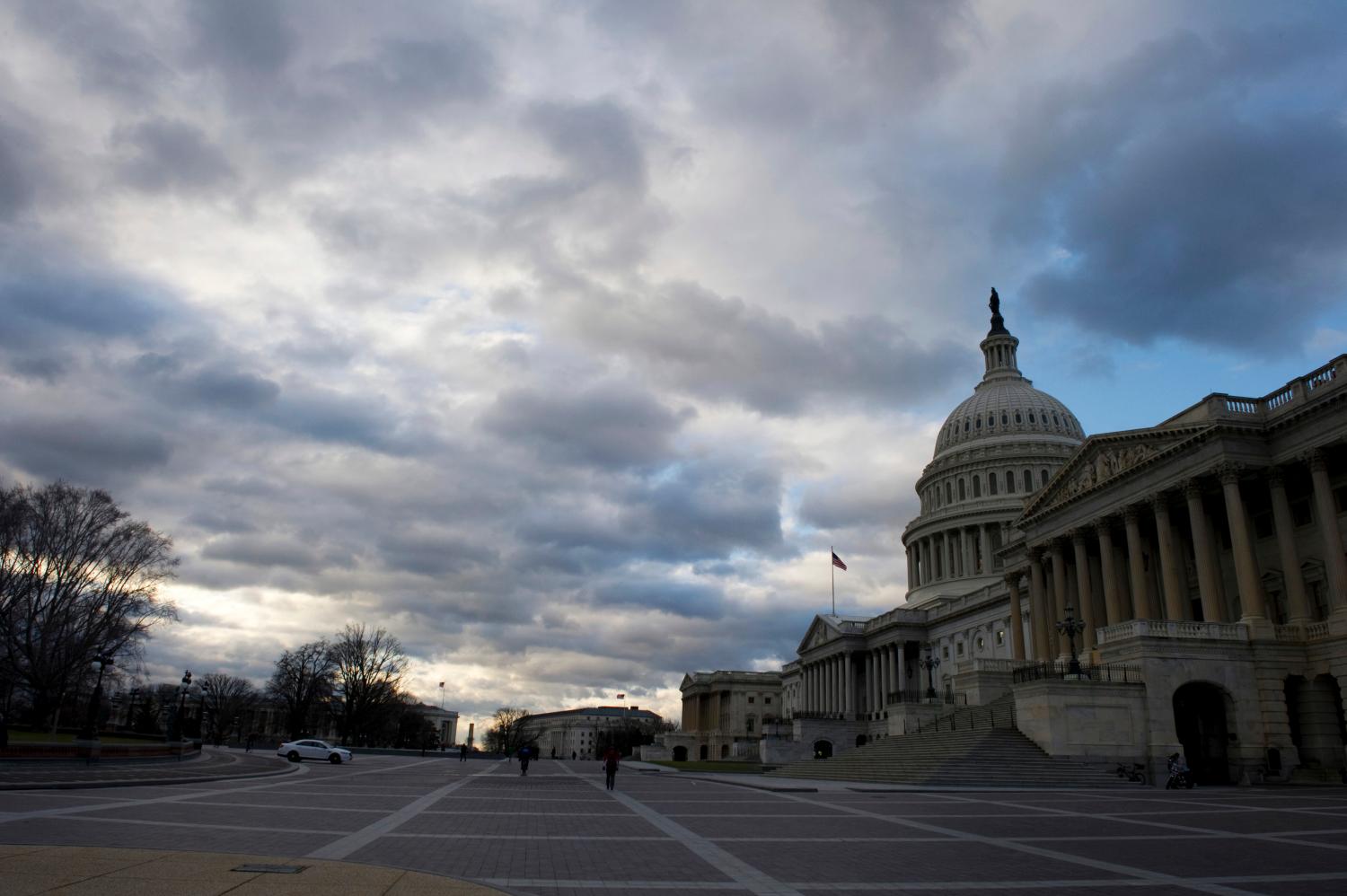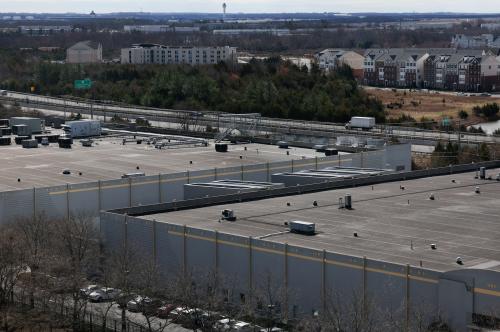As Congress shifts many now-federal powers to lower levels of government, it is missing a unique opportunity to resolve a fundamental flaw in America’s governance structure: the absence of any authority at the metropolitan-region level. Metropolitan regions have become the most important functional units of economic and social life in almost all modern societies. Nearly all major problems in urban areas are region-wide in scope, and so cannot be solved by local governments acting independently. Yet, in most U.S. metropolitan areas, there are no significant governing bodies with regional scope. All public policies are created by local governments with narrow parochial viewpoints, or state governments too far from local conditions to be effective. Since no one with authority is considering the welfare of each region as a whole, regional problems steadily worsen. To mend this flaw, instead of shifting all devolved authority only to state or local levels, Congress should help to create regional institutions more capable of solving key problems. It could do so by requiring each metropolitan area to engage in true regional planning and decisionmaking before it could receive any federal funds. That would provide a strong incentive for the governments in each metropolitan area to form effective governance bodies at the regional level.
POLICY BRIEF #3
The Disney organization’s frustrating experience in trying to create a new theme park outside of Washington shows why Congress ought to devolve some of the authority it is now shifting from federal to state and local levels to the metropolitan-region level instead. When Disney proposed a new American history theme park in Prince William County outside Washington, local officials were thrilled. Their county the main form of local government in this region desperately needed a broader tax base. Its burgeoning population was demanding more schools and other services, but the county had few non-residential properties or sales activities to tax to pay for those services. So residential tax rates were soaring to unacceptable levels. But many residents in surrounding counties were horrified. They envisioned huge potential increases in vehicle traffic, a lot of ugly commercial development blighting the landscapes through which they commuted daily, the state’s diverting massive highway spending to aid the Disney project, and possible competition for their own non-residential tax bases. Their opposition was so fierce that Disney canceled the project, depriving the region of a major source of jobs and tourism.
The Conflict
This was a classic case of the inherent conflict between the fragmentation of local governments and the regional nature of economic forces. Because each county must finance itself mainly from its own resources, no local government was willing to consider the project from a regional point of view. Instead of all counties sharing in the assessed values of each major new project, each fights to capture as many commercial “ratables” as possible, while rejecting as many users of local services as possible mainly by excluding low-cost housing. So all other counties opposed Prince William’s capturing this prize, partly because they would have to bear some of the resulting costs without gaining any of the tax benefits.
This is just one example of a crucial failure of American governance that Congress is about to worsen. A widely supported part of the Republican Congress’s agenda since November 1994 has been reducing the role of the federal government in American life by shifting more power and authority to lower governmental levels. Unfortunately, Congress is focusing entirely on devolving power and authority to state and local governments, ignoring the metropolitan-area level. Congress is thereby missing a unique chance to create and reinforce a system of governance much more in tune with the spatial realities of modern life. The major economic and social units of most societies today including our own are neither states nor localities, but metropolitan areas or regions. Therefore, Congress should stop by-passing this more functional level of governance in deciding where to locate powers being shifted away from the national level.
Geographers, economists, and sociologists are now nearly unanimous in believing metropolitan areas or regions not states or localities have become the most salient spatial units affecting a society’s economic productivity and efficiency. Why? Because the various spatial sections of each metropolitan area are linked together in a series of densely interlocking networks. These networks transcend the boundaries of most individual communities, but are not as intensive at the larger state level. They include streets and highways; water and sewage disposal systems; commuting patterns between homes and workplaces; communications linkages through local television, radio, and newspaper media; development patterns of both residential and non-residential properties; non-work trips linking homes and other destinations like shopping centers, cultural centers, and medical facilities; elementary and secondary school systems extending through community colleges; causes of environmental degradation affecting air and water pollution; user and supplier networks for countless business activities; and cooperative arrangements among public agencies like police and fire departments.
In all these spheres of activity possibly excepting housing markets people and resources flow relatively freely throughout each metropolitan region in functional patterns that bear little relationship to local or state legal boundaries. Concerning these networks, no locality can effectively isolate itself from the rest of its metropolitan region, because its destiny is inexorably bound up with what is happening there.
The Problems
This can most easily be seen concerning the major problems associated with overall regional growth. They include crime spreading out from inner-city neighborhoods into surrounding suburbs, increasing traffic congestion now worse in many suburbs than downtown, and poor quality public schools that reduce the level of labor force skills available to employers throughout each region. Other growth-related problems are the rearing of almost one-fourth of all American children in poverty-stricken homes, our inability to finance new infrastructures adequate to handle rapid population increases, failure to integrate many young unskilled workers and older down-sized workers into the mainstream workforce, and pollution of the air and water from myriad sources scattered throughout each region. All these problems are basically regional because each extends across local boundaries; so what happens concerning them cannot be determined by policies adopted only within each community. The faster the region’s total population growth, the more serious these problems become, and the less effective are any attempts at remedies adopted by particular communities acting alone.
Yet the structure of governance within metropolitan areas almost never reflects these regional realities. Except for a few regional transportation or sewer-and-water authorities, almost all governmental powers affecting the above problems are divided among individual localities, most of which are too small to encompass any large fraction of those problems. True, state governments retain many such powers and have the ultimate Constitutional authority to revise local government powers and structures. But most states are too large to focus their policies upon the problems of individual metropolitan regions. And governors and state legislatures prefer to delegate key powers to many small, fragmented local units, rather than creating regional bodies that might compete with their own powers. Therefore, except in less than a dozen of the nation’s more than 300 metropolitan areas, no effective regional governance structure exists.
Since every local official is legally responsible only to voters in his or her own community, they are all strongly motivated to take account only of the welfare of their own constituents, ignoring repercussions on everyone else. So each local government designs its policies to capture as many benefits as possible, while shoving as many costs as possible onto surrounding jurisdictions. Thus, Prince William County would have retained almost all the property and sales tax benefits of the Disney project and adjacent new development, while a lot of traffic congestion and other costs would have fallen upon other counties. If some type of tax-base sharing and regional land-use planning existed among these local governments, a much more rational pattern of land uses and of financing public services could be devised. Instead, especially in other areas with much smaller local governments than in the Washington region, huge disparities in local governments’ abilities to provide public services arise from variations in tax bases. Some localities have 10 to 15 times more assessed value per resident than others with central cities and inner-ring suburbs usually on the low end. This creates immensely unequal opportunities in terms of the quality of public schools and other vital services provided within a single region. In general, the poorest residents get hurt the most.
The Recommendation
Congress could improve this situation almost overnight by requiring each metropolitan region to develop an overall plan for the use of federal funds of all types, before any government in that region could receive any federal money at all. In 1991, Congress adopted this approach concerning federal surface transportation funds. Now it should extend the same idea to all types of federal funding of local governments and services. That would affect federal welfare, housing, and health spending, among others. Faced with this requirement, local governments in each region would have a powerful incentive to get together and form some type of regional planning alliance in order to get federal funds. Yet a devolution of power away from the national level would still take place but at a functionally far more effective level.
Opponents criticize more regional governance for two reasons. First, they claim it undermines “local sovereignty” by shifting some power to regional bodies. But localities have no true “sovereignty” over regional problems, because those problems cannot be effectively attacked by purely local policies. Second, they claim any regional governance is “just creating another level of bureaucracy.” But the existing local level cannot cope with regional realities; so something else must be tried for effective results. Regional arrangements have proved very successful in both Portland, Oregon, and the Twin Cities area of Minnesota. In reality, both these objections are primarily motivated by the unwillingness of most local officials and many citizens to yield any of their existing powers, even though those powers are failing to solve many crucial social problems.
Unfortunately, almost none of the specific changes in federal power and authority being considered by Congress are paying any attention to the regional level. It is time for Congressional leaders to recognize the spatial realities of American life by taking account of that level in each major devolution of federal authority they consider.
The Brookings Institution is committed to quality, independence, and impact.
We are supported by a diverse array of funders. In line with our values and policies, each Brookings publication represents the sole views of its author(s).




